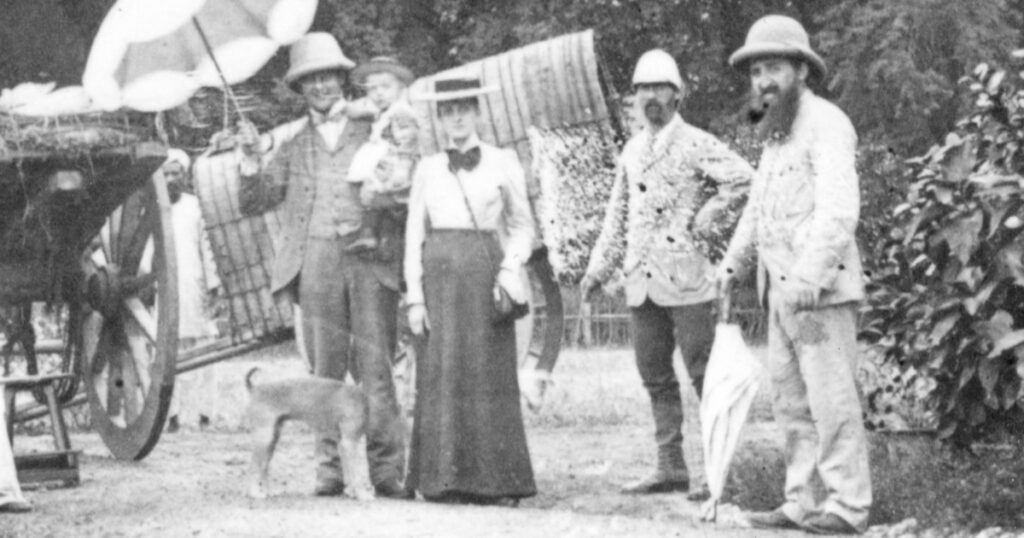by Curtis P. Giese
When it comes to talking about the person and work of Christ, Lutheran theology is particularly rich. The Lutheran Confessions (for example, Apology IV, 51) state again and again that every article of the Christian faith connects with the saving work of Jesus Christ, and as a result, Christ is boldly proclaimed from every Lutheran pulpit.
Unless it’s Pentecost Sunday, however, Lutherans may hear much less about the Holy Spirit in sermons and Bible studies, and they may be largely unfamiliar with who the Spirit is and what He does.
There’s a good reason, of course, that Lutherans generally try not to overemphasize the Holy Spirit: The Spirit Himself wants us to keep our eyes fixed firmly on Christ!
Even so, silence on the subject can lead to some negative consequences for the Church. Confusion can arise regarding the Spirit’s unique role and His saving action among God’s people. Christians hungry to know more about the Third Person of the Trinity may seek answers in non-Lutheran or even non-biblical sources, cobbling together an inaccurate and incomplete theology of the Spirit (also known as “pneumatology”) from what they find there.
Miracles, tongues and a ‘still, small voice’?
It’s hard to deny, on the surface, at least, that the way some other church bodies talk about the Holy Spirit can sound more exciting than the Lutheran point of view.
Pentecostal churches often emphasize the dynamic works of the Spirit: speaking in tongues, healings, new prophecies, dancing in the Spirit in worship and the like. Some even teach that these tangible experiences of the Spirit are necessary to validate one’s faith. They prompt Christians to look toward glorious manifestations of the Spirit’s presence — rather than to cross and Baptism — for the assurance of salvation. Chris Armstrong, in his article “Embrace Your Inner Pentecostal,” cites a growing number of denominations that are embracing Pentecostal practices in worship. He maintains that the Third Person of the Trinity is present in such services as a “Spirit of Spontaneity,” and places strong emphasis on “encountering the divine” in “immediate” and “experiential” ways.
Evangelical Christians, while sometimes reluctant to embrace Pentecostal worship practices wholesale, often emphasize the subjective work of the Holy Spirit in other ways: as private revelations, intuitions, inner voices, emotions, feelings or dreams. This way of understanding the Spirit’s work directs Christians to look for personal guidance from the “still, small voice” (1 Kings 19:12) of the Spirit speaking outside of Holy Scripture. Evangelical scholar Daniel B. Wallace, in “Who’s Afraid of the Holy Spirit?,” refers to difficult times in life when Scripture is inadequate and one must rather rely on direct revelation by the Spirit and seek an “existential experience” with Him. Wallace advocates individual revelation from the Spirit to grant specific guidance in life decisions.
How the Spirit doesn’t promise to work
These understandings of the Holy Spirit’s work are exciting, dynamic and personalized. It’s not surprising that such glorious, individualized manifestations are quite attractive to people in the present age, when cynicism runs rampant and miracles are scarce. Unfortunately, neither of these ways of thinking about the Spirit’s work is fully biblical, and both can lead to grave spiritual harm.
For example, one person’s “Spirit-given” intuition may totally contradict another person’s intuition and even stand in direct opposition to Scripture. How can one be certain of the source of these extrabiblical revelations (1 John 4:1–3)? What if you “feel the Spirit” leading you to commit adultery, get an abortion or reject some other clear teaching of the Word of God? Imagined revelations can result in divisions among Christians, confusion, doubt and sin.
What’s more, building one’s Christian life around subjective experiences of any kind leaves a person woefully uncertain about the nature of God, forgiveness and salvation. If your church teaches that speaking in tongues is the one sure sign that you’ve been saved, yet you’ve never received the gift of tongues, what must you believe about the state of your soul?
The primary reason, however, that we should be skeptical about such “immediate” and “experiential” workings of the Holy Spirit is simply this: He does not promise to be present in our lives in this way. The Spirit’s work is always bound up closely with the revelation of the incarnate Christ, who lived, suffered, died and rose again for us. Jesus says of Him, “But when the Helper comes, whom I will send to you from the Father, the Spirit of truth, who proceeds from the Father, he will bear witness about me” (John 15:26, emphasis mine). The Spirit is not some “force” to experience but the Third Person of the Holy Trinity, who speaks to us an unchanging, undivided, consistent message: the eternal Gospel of Jesus Christ crucified.
If the Holy Spirit seems unconcerned about whether we feel an emotional high during Sunday worship or receive divine guidance about whether to buy a Ford or a Chevy, it’s doubtless because He wants to give us something even better: “a living hope through the resurrection of Jesus Christ from the dead … an inheritance that is imperishable, undefiled, and unfading, kept in heaven for you” (1 Peter 1:3–4).
A biblical Lutheran understanding of the Holy Spirit
In the Small Catechism, Martin Luther gets right to the heart of the Spirit’s saving work in his explanation to the Third Article of the Apostle’s Creed:
I believe that I cannot by my own reason or strength believe in Jesus Christ, my Lord, or come to Him; but the Holy Spirit has called me by the Gospel, enlightened me with His gifts, sanctified and kept me in the true faith. In the same way He calls, gathers, enlightens, and sanctifies the whole Christian church on earth and keeps it with Jesus Christ in the one true faith.
When Luther specifies the Gospel as the means by which the Holy Spirit works, we again notice how the Spirit binds himself to the Word of God and not to human experience. In this, he echoes Jesus, who says, “When the Spirit of truth comes, he will guide you into all truth, for he will not speak on his own authority, but whatever he hears he will speak, and he will declare to you the things that are to come. He will glorify me, for he will take what is mine and declare it to you” (John 16:13–14; see also Rom. 10:17).
The verbs Luther uses in his explanation tell us much about the person and work of the Spirit. It is, first, the work of the Spirit to call us to faith in Christ by the Gospel. Nobody can come to Christ on his own. You could sooner believe that the sky was neon green than you could believe the truth of the Gospel without the Spirit first calling you to faith. “To this he called you through our gospel,” Paul writes, “so that you may obtain the glory of our Lord Jesus Christ” (2 Thess. 2:14; see also 1 Cor. 6:11; Eph. 4:4; Rev. 22:17). The Spirit also gathers us into one holy Church, the communion of saints, the Body of Christ (Eph. 4:4–6; Matt. 28:19; 1 Peter 2:9). He enlightens dead hearts and blind eyes to recognize and receive their crucified and risen Savior (1 Cor. 2:6–16; 12:3; 2 Cor. 4:6; Rom. 8:7–9). Luther further elaborates upon this work of the Spirit in the Large Catechism: “The Holy Spirit reveals and preaches that Word, and by it he illumines and kindles hearts so that they grasp and accept it, cling to it, and persevere in it” (LC II, III, 42).
Finally, the Spirit sanctifies us. He makes us holy. Sanctification in a wider sense refers to the entire work of the Spirit, from creating faith in us, to helping us lead a devout life, to bringing us to resurrection and eternal life. This leading to faith is usually accomplished by the Spirit’s work in Baptism, when the Word and promises of God, connected with water, wash us clean from sin and unite us to the death and resurrection of Jesus. St. Paul says: “But you were washed, you were sanctified, you were justified in the name of the Lord Jesus Christ and by the Spirit of our God” (1 Cor. 6:11, see also John 3:5–6).
The blessings of a Lutheran pneumatology
Great blessings come to us when we fully embrace a Lutheran understanding of who the Spirit is, how He works and where He can be found.
First, we learn the proper role of emotions in the Christian faith. Though some like to portray Lutherans as emotionally cold and distant (at least compared with Pentecostals), we know that the Holy Spirit’s work through sacred Scripture does indeed affect our feelings and emotions. We know, too, though, that these emotions — which run the gamut from the anguish of Good Friday to the joy of Easter morning — arise as a result of God’s revelation. They do not serve as a means of God’s revelation.
Second, a Lutheran pneumatology gives us a right understanding of the way in which the Spirit guides our lives. Many decisions confront us where we cannot easily discern the best choice. Christians need not seek a special message or revelation from the Spirit where He does not promise to be. Given a palate of possible appropriate choices, Christians are free to use their God-given wisdom as informed by Scripture to choose responsibly from among them. There may not always be a single God-pleasing option. We can rest in the assurance that God can use us for good in any station in life as we apply our God-given abilities and wisdom to serve our neighbor, family and others. Although we cannot be certain of specific guidance from the Spirit, we can be confident of the Spirit’s general guidance when He produces His fruit in us: “Love, joy, peace, patience, kindness, goodness, faithfulness, gentleness, self-control” (Gal. 5:22–23).
Finally, since a Lutheran view of the Holy Spirit emphasizes the Spirit’s work through the single voice of sacred Scripture, it promotes unity, order, clarity and certainty, both in our hearts and in the Church. This is in contrast to the chaotic mess of thoughts, emotions and intuitions that may mislead us, creating confusion, disorder and uncertainty. By understanding that the Spirit communicates through Scripture, Christians can build their lives upon a solid foundation of what they know comes from God.
The Spirit in the Divine Service
This biblical Lutheran view of the Holy Spirit becomes beautifully clear for us each week in the Divine Service. In the Invocation, the Spirit reminds us of our Baptism and assures us that He has drowned our old sinful selves and raised us to new life in Christ. In the rich Law and Gospel content of the Confession and Absolution, the readings and the sermon, the Spirit works through Scripture to create in us repentance and contrition, forgiveness, hope and faith in the resurrection of Jesus. As we confess our faith in the creeds and render our prayers and offerings to the Lord, the Holy Spirit magnifies our voices and our gifts, raises them up to our heavenly Father and adds His prayers to ours, making up for all we lack (Rom. 8:26–27). In the Lord’s Supper, as we receive Christ’s body and blood for the forgiveness of our sins, the Holy Spirit delivers to us “pardon and peace” and strengthens us in “faith toward [God] and in fervent love toward one another.”
Throughout the Divine Service, we may feel peace or anxiety, joy or sadness, excitement or boredom — or even all of the above! What we feel or don’t feel, however, does not and cannot change the reality of what’s happening. The Spirit is present among us, busily at work where He has promised to be: in the Word, in the Sacraments, wherever two or three are gathered in Christ’s name (Matt. 18:20). By His grace, we leave the sanctuary resting in the peace of God, with His Word in our heads and His love in our hearts, equipped and ready to do the good works He has prepared for us.
The Rev. Dr. Curtis P. Giese is professor of theology at Concordia University Texas and author of both the volume on 2 Peter and Jude and the forthcoming volume on James in the Concordia Commentary series.
This article originally appeared in print in the May 2019 issue of The Lutheran Witness.







This article beautifully explains the profound role of the Holy Spirit in guiding and strengthening our faith journey!
As a new Lutheran from a pentecostal background, I find the absence of emphasis on the Holy Spirit particularly distressing. First, the Holy Spirit would never direct us to do something that is against the word of God. Second, Jesus ascended so that we could each have his presence in us thru the Holy Spirit of God – to be our Comforter, Guide, and give us wisdom in our decisions and the ability to forgive those who have hurt us. How can any Christian have a truly intimate relationship with Christ without the Holy Spirit? How can we understand Scripture without the Holy Spirit? This explains -sadly – why the congregation seems to be so illiterate when it comes to the word of God. They have been in the church for decades and have little to no understanding of the Bible. I find it a huge disservice to Lutheran believers.
I agree with your viewpoint. I have a varied church history. Raised Presbyterian, and in the 70’s Calvary Chapel. Then I met my husband who was raised LCMS Lutheran. He wanted to stay in his roots, in the conservative LCMS church. We have been members for 8 years now. I have not heard anything about the gifts of the Holy Spirit or supporting scriptures in all this time. Except on Pentecost Sunday. We hear of the apostles receiving the Holy Spirit and speaking in tongues. I do agree with the LCMS that speaking in tongues (as an example) is NOT evidence that one is saved or that it is at ALL a salvation issue. It is ONE of the gifts of the Holy Spirit. There are other operating gifts. These gifts are given to Christians now and everywhere. All for the glory of God. This site is helpful to understand. https://www.biblelyfe.com/blog/gifts-of-the-spirit I find it sad that the Lutheran Church as a whole ignores whole swaths of scripture, or perhaps these gifts are not for the church of today and ended with the apostles. However, the Bible does not support this stance at all.
Jesus said that the Holy Spirit bears witness about Him. (John 15:26) If youre hearing the preaching of Christ, youre hearing the Holy Spirit. The preaching of Christ crucified and the Holy Spirit are not mutually excluive. In fact if youre not hearing the preaching of Christ then you might be hearing a spirit but it might not be the Holy Spirit.
All of the above is helpful. A crucial bit of information however still seems to be elusive: How is the child of God actually filled (read: baptised, given, etc.), in good, solid biblical terms, with/by the Holy Spirit? And I don’t mean the indwelling Spirit, which all children of God already have.
We are instructed to ask for the Holy Spirit. See Luke 11:13. We do not automatically get the Holy Spirit when we are baptized. We have the human spirit that comes to us in birth, but if we want to be filled with the Holy Spirit, we must humbly ask. I have found that being around other strong believers helps. There is more power in our prayers. There is understanding of the Word. The Holy Spirit endows us with the power of Christ. Hope this helps.
We absolutely do receive the Holy Spirit when we are baptized. Acts 2:38-39 tells us this especially clearly. The Gospel passage for this coming Sunday, John 7:37-39, while not explicitly tied in in the text with baptism, does clearly indicate that nothing more than coming to Christ and believing in Him (begins in baptism, with the belief itself being the work of the Spirit in you) results in the “streams of living water” flowing deep within. This does not mean that we cannot ask for more of the Spirit/His work among us, perhaps, and that would be an interesting discussion to have based around the section of Luke you cite. But what you cite certainly does not detach the Spirit’s indwelling from baptism.
It is good to keep in mind that Christ stated that God is a spirit. When we seek to know God, we are seeking to know the Spirit. “Hear, O Israel, the Lord our God, the Lord is One.” Our people ought to be taught to seek a sign of the presence of the Spirit of God, and to bring this revelation to the attention of the masses of people of this Fallen world.
The revelation of the presence of the Holy Spirit does not appear to be given much of the narrative that flows from the lips of most who speak from the pulpit. If we persist in seeking a sign of the presence of God — If we seek the anagogic interpretation of Scripture, rather than the literal, moral and allegorical interpretations of Scripture, then we arrive at the point of Scripture, that is the spiritual and mystical interpretation.
This is Purgatory — the land of Fallen mankind. In order to reach toward the higher places of the kingdom of heaven, we have to seek to know God — who is spirit — and to fervently serve God. How is it that this simple point doesn’t get expression from our leading clerics?
Another request for group study resources on the Lutheran perspective on the Holy Spirit?
Have you gotten a response? I would like more info as well.
An excellently written article. Having only recently become truly aware of my church’s stand on the work/ purpose , if you will, of the Holy Spirit this article is exactly what I needed to read.
I am having a great deal of difficulty understanding how the Holy Spirit can be considered the Comforter unless there is some direct, real , and deep awareness of that omnipresent part of God within us. Some personal feeling of being comforted. I am left with a gaping hole in my daily walk with Jesus if he is not a vital part of my inner most being. This teaching of the LCMS that the Holy Spirit is not my personal comforter in time of need, does not offer me help in walking my Christian walk, and cares nothing about the choices I make in my life , and that I delude myself if I think I can feel the presence of the Holy Spirit supporting me on this journey called earthly existence , leaves me in despair . The love I feel for the Trinity of God is definitely personal. I feel like part of the family of God, like God’s own child, not simply the member of a congregation of church goers. It is with overwhelming gratitude that I recognize what Jesus has done for me. It’s real. It’s deeply personal. He chose me. Me. Out of all the millions of humans on planet earth, God chose me . Frankly anyone who does not recognize those feelings fails to comprehend the magnitude of who God is, in my opinion. Perhaps I am unable to understand the theology . Is love a feeling?
Great article. I spent seven years in the Charismatic Movement (1982-1989) and have seen many things done and said by the so-called prompting of the Holy Spirit. I can see the Holy Spirit workings withend the Divine Service without all the craziness.
Is there a fairly short Bible Study which could be used in a small group regarding The Holy Spirit. I found at an LCMS women’s group meeting there were some differences on views of the Holy Spirit in regards to the Work of the Holy Spirit and level of importance of the Holy Spirit within the Trinity. Hope that makes sense. Sharon
Whay about water baptism? According to bible?
“This is the one who came by water and blood—Jesus Christ. He did not come by water only, but by water and blood. And.it is the Spirit who testifies, because the Spirit is truth. For there are three that testify: the Spirit, the water and the blood; and the three are in agreement.” (1 John 5.6-8)
Paul rarely baptized anyone. He wrote:
“My message and my preaching were not with wise and persuasive words, but with a demonstration of the Spirit’s power, so that your faith might not rest on man’s wisdom, but on God’s power.” (1 Cor. 2.4, 5)
The cup of wine is the New Covenant in Christ’s blood. (Lk. 22.20) That Covenant is our agreement with God. Blessings and curses flow from that relationship. Yet we never hear mention of this important theological doctrine. (See Jer. 31.31-34)
Related Bible passages perhaps worth mentioning:
Jesus said, “The wind blows where it wishes and you hear its sound, but you do not know where it comes from or where it goes.” John 3:8a
To disciples who already had faith in him, Jesus said, “But you will receive power when the Holy Spirit has come upon you….” Acts 1:8
“Now there are varieties of gifts, but the same Spirit … who apportions to each one individually as he wills…. But earnestly desire the higher gifts.” 1 Cor. 12
Unfortunately, I have never heard any LCMS pastor in any church I have attended over many years even once mention the work of the Holy Spirit in sanctification. There may be a distinctly Lutheran view, but few Lutherans in the pews are properly taught about it. Your summary was excellent. How I wish many pastors would engage in solid preaching instead of going for the 10 minute monologue with a joke or two thrown in. It is my opinion that good preaching is not given the priority it deserves.
The Scriptures teach,That when a person is truly born again ,then the Holy Spirit is in their heart. As Jesus told His followers to wait for the Holy Spirit (Acts 1:4-5) at that time until now,every believer shares the power of the Holy Spirit.
7 gifts,Dwells within,Seals us in Christ, Assures us of salvation,Helps us graspo the truth of Scripture,Empowers us to live the Christian life,De velops fruit,Gives us the gifts of serving others. Today,We are trying to do the work of God,with out God,the Holy Spirit!! As it was in the beginng is still so true today.